On January 27, a man named Manzoor Pashteen was arrested in the middle of the night in Peshawar. He faced five charges, including sedition, criminal conspiracy, attacking Pakistan’s sovereignty, and promoting ethnic hatred. Pashteen is the young leader of the Pashtun Tahafuz (Protection) Movement, or the PTM: a non-violent protest movement demanding rights for Pashtuns in Pakistan’s former Federally Administered Tribal Areas.
Days after Pashteen’s arrest, PTM activists — elderly women among them — protesting for his release in front of the press club in Islamabad were arrested and also charged with sedition. Those activists were released on bail after a few days, but Pashteen remains under arrest.
Coverage of his two-year-old movement is censored in Pakistan. Newspapers and TV outlets are not allowed to report on the huge rallies the movement holds — with attendees numbering in the tens of thousands — or to air the movement’s demands. In a state that has routinely negotiated with right-wing Islamists who take to the streets, why have the PTM’s members been repeatedly arrested, and why does this movement of dissenters present such a challenge to its military?
The movement and its demands
The movement alleges grave human rights violations by Pakistan’s military against Pashtuns in the country’s northwest. It says that Pashtuns have been the target of violence at the hands of both the Taliban and the Pakistani military for two decades. The movement claims that the military has killed innocent civilians in its operations against the Pakistani Taliban, and that it needs to answer for “missing persons.” It also contends that Pashtuns are regularly harassed at checkpoints and treated with suspicion, and that landmines continue to make their lives insecure.
These complaints festered for years before the movement was officially created in 2018. In 2015, while conducting interviews for my book, I met Pashtun students in Lahore who told me that the army’s ongoing, multi-year military operation — Zarb-e-Azb — was not what it seemed from outside the tribal areas.
The PTM demands a truth and reconciliation commission to address claims of extrajudicial killings and missing persons. The movement also claims that the military supported Pakistani Taliban (also known as Tehreek-e-Taliban Pakistan, or TTP) militants, and its leaders have said — most explosively — that after the military claims to have decimated the Pakistani Taliban in Zarb-e-Azb, “the Taliban are being allowed to return” to the tribal areas in a “secret deal with the military.” One of its slogans translates to: “This terrorism— behind it is the uniform.”
The military categorically rejects these claims, arguing that the movement is dangerous and that its rhetoric threatens Pakistan’s constitution. PTM leaders argue, in turn, that they are only asking for their constitutional rights. Two of the PTM’s leaders, Ali Wazir and Mohsin Dawar, were elected parliamentarians in the July 2018 election that also brought Prime Minister Imran Khan to power, giving the movement some parliamentary representation. Yet last May, after a protest turned violent (the PTM claims soldiers shot unarmed protesters; the state claims the protesters shot first), Dawar and Wazir were arrested and spent four months under detention.
Fact-checking the PTM’s claims
While sources have corroborated some of the PTM’s claims regarding missing persons and civilian deaths at the hands of the military, the assertion that Taliban militants are being allowed to return to these areas — some carrying weapons — remains mostly uncorroborated. This is in large part due to the fact that army has a kept a chokehold on the tribal areas, shuttling in journalists and officials for sanitized tours of the region. The army does not allow anyone except locals free rein to see for themselves the full effects of its kinetic operations against the Pakistan Taliban.
While the number of TTP attacks has fallen dramatically — lending credence to the military’s story — and the military has lost thousands of soldiers in operations against the Pakistani Taliban, some reports do claim that members of the TTP have been given amnesty in return for sharing intelligence, and allowed to return to the area. But these are sporadic accounts, largely due to the lack of access that the military provides to these areas.
Why the PTM threatens Pakistan’s military
Since last year, Pakistan’s military — increasingly emboldened and powerful vis-à-vis the country’s civilian institutions — has said publicly that it has had enough of the PTM, telling the protesters their “time is up.” While the group has mostly been allowed to hold protests, it has also been maligned relentlessly as full of traitors, charged with a colonial-era sedition law (which criminalizes disloyalty, contempt, hatred, and disaffection for the state), and labeled agents of “enemy governments,” alternatively India and Afghanistan.
Why does the army find the PTM unbearable? Because the movement is calling the army to account and questioning its integrity.
Ironically, the state has given more voice to terrorists than it has to this group. The spokesperson for the Pakistan Taliban, Ehsanullah Ehsan, was allowed to be interviewed for television in 2017 (though most channels pulled the interview after receiving complaints; most recently, Ehsan appears to have escaped the military’s custody). The state also engaged in talks with the Pakistani Taliban before beginning the Zarb-e-Azb operation against them in 2014. Yet for the state to silence the PTM more than it did terrorists is not surprising either, because a non-violent protest movement calling the army’s integrity into question may threaten the army’s legitimacy in Pakistan in a way the TTP never did.
On another level, the Pakistani state finds the PTM threatening because the former has always been troubled by strong ethnic loyalties; the state believes ethnic cleavages threaten Pakistan’s unifying glue of an Islamic identity. The rhetoric wary of ethnic loyalties began with Pakistan’s founder, Mohammad Ali Jinnah, who soon after the country’s creation warned Pakistanis against the “poison of provincialism” that could threaten Pakistan’s unity. The lesson the Pakistani state took from the secession of East Pakistan to form Bangladesh in 1971 — caused by political and ethnic grievances — was ironically to double-down on its Islamic identity (and to Islamize its laws and its education system), at the expense of individual ethnic loyalties. In Baluchistan, the military has been fighting a low-level separatist Baluch insurgency with acute repression for decades. And the state has long worried about Pashtun separatism and about the Pashtuns’ close ties with Afghanistan. It appears to believe its policy of support to fundamentalist Islamists, including the Afghan Taliban, helps counter Pashtun influence.
What ordinary Pakistanis think about the movement
The censorship of the PTM and the state’s official stance on the group has largely worked in shaping the narrative for Pakistanis. Though there is no formal polling on this, many Pakistanis seem to buy the state’s narrative; they are critical of the PTM, calling them traitors who operate at the direction of other states.
In addition, many Pakistanis conflate Pashtuns with terrorism, which also hurts the PTM’s case. Only a small group of liberal, progressive lawyers and activists — and among political leaders from the three major parties, only Bilawal Bhutto Zardari of the Pakistan People’s Party — have spoken out in favor of the movement. The conversation about the PTM takes place mostly on social media, where journalists, who have seen segments of their shows covering the PTM cut from the airwaves, have also been more open.
Khan’s stance
Prime Minister Imran Khan and the military are likely not on the same page regarding the PTM. If he were unshackled by the military, my sense is that it would not be Khan’s instinct to repress the movement. Nonetheless, it is an issue on which Khan chooses to remain silent to preserve his position as prime minister, for which the military serves as the ultimate guarantor.
Khan periodically says that “armies are not meant to go into civilian areas” when he talks about the Pakistani army’s efforts to help the U.S. war on terror, and that such military operations only increase militancy, which he says explained the rise of the Pakistan Taliban. When pressed about the PTM at an event at the U.S. Institute of Peace during his visit to Washington last July, he said directly:
We should never have sent army there. Whenever you send an army into civilian areas, there are massive collateral damage, and massive casualties and destruction. (…) And, and so once this whole thing was over, this young Pashtun movement started. And this Pashtun movement was correct, what they were saying. The area was devastated, the people of the tribal areas, I mean, half of them were internally displaced, the shops were gone, the most of them relied on livestock. Livestock disappeared. The whole area was, as it is tribal areas before 2001, 75% of the people were under the poverty line. So after this military action, they even went further down. So we had this young movement and, and movement stemming out of anger. And they, of course, they blame the Pakistan Army for, for all the devastation there.
But Khan also said that the PTM started attacking the Pakistan army (he implied that it was via its rhetoric), and that in the encounter at the protest last May, civilians charged at an army post. He said he was hopeful that his merger of the former federally administered tribal areas with the province of Khyber Pakhtunkhwa would bring progress to the region. All this suggests that he has sympathy for the PTM, but Khan has remained studiously silent on the issue in recent months.
Going forward
This protest movement shows no signs of receding: PTM activists say they have “nothing more to lose” and will continue to protest. But it is also clear from Pashteen’s and the other protesters’ arrests that the state will continue to repress it. The PTM’s allegations are all gravely serious, and if true, would be a damning indictment of the state’s malintent toward its own citizens. If the movement’s charges are false, as the army claims, then the army can engage with the PTM, pull back the curtain on the tribal areas, allow for a truth and reconciliation commission, give an accounting of its actions against the Pakistani Taliban, and absolve itself.
But there is no reason to think it will do so. Pakistan’s military has always guarded itself against accountability, and in recent months, Pakistan’s civil-military scales have tipped further in favor of the military. The current army chief’s term has been extended, and parliament passed new rules for extensions of all military chiefs. The real question is: How far will the military go to repress this movement? The cause for concern is the potential for the confrontation to turn violent.
Beyond the Pakistani state’s repression and the potential for violence, the PTM’s allegations have direct relevance for American security interests. Because if true, the movement’s claims that the army is in cahoots with the Pakistani Taliban would continue to put Pakistan’s sincerity in fighting terrorism both within its borders and beyond into doubt. Such sincerity is something that the Pakistani army has repeatedly asserted in recent years. It suggests that the army will continue to support the Afghan Taliban, too, once the U.S. withdraws from Afghanistan. All this should be of direct concern to America as it seeks to negotiate with the Taliban and leave Afghanistan.
The Brookings Institution is committed to quality, independence, and impact.
We are supported by a diverse array of funders. In line with our values and policies, each Brookings publication represents the sole views of its author(s).

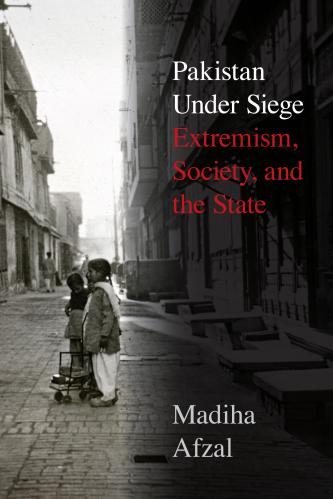
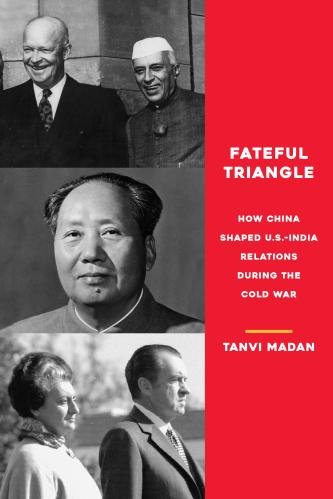
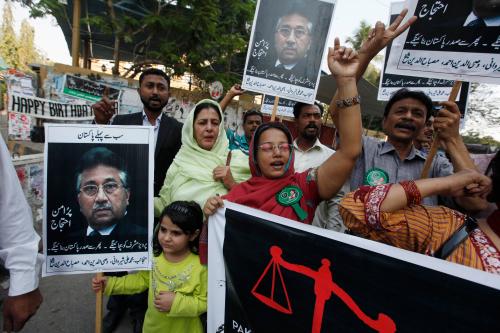
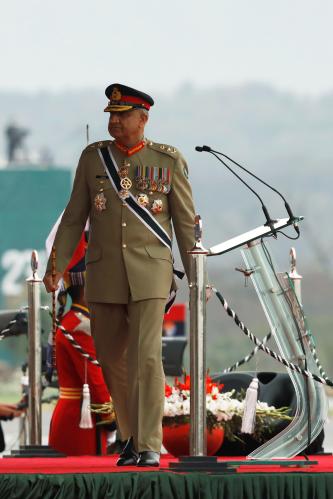
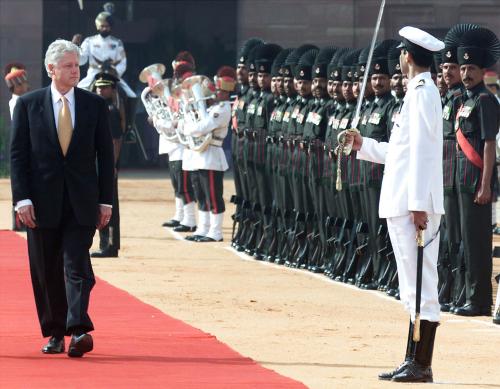



Commentary
Why is Pakistan’s military repressing a huge, nonviolent Pashtun protest movement?
February 7, 2020